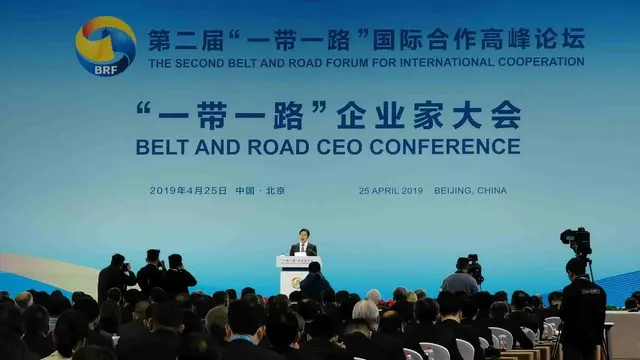It's the first CEO conference for China's Belt and Road Forum. Some 900 business leaders are coming to show their commitment to the initiative, representing global Fortune 500 companies and Chinese firms doing well overseas.
George Zhu, chairman of Transsion Holdings, thought that Chinese companies have solid foundation in telecoms and the Internet, allowing them to test overseas markets because of China's focus on digitalization.
Italy is set to be the first G7 country to join the Belt and Road Initiative, mainly for infrastructure investment opportunities. As for the Digital Silk Road project, the list of members remains short. And China continues working to try and get more power players on board, which is critical for global digital governance, according to Winston Ma, CEO of China Silkroad Investment Development Co.
For the Digital Silk Road, it's about the evolution of the digital economy. It's also about the evolution of digital governance. If you think about the fact that digital economy has very strong economic scale and the fact that China and G7 are the largest digital economies in the world, then they will have the most influence on the development of future digital economy and the global cyberspace community, he said.
Therefore, it is not only 'should' and 'would,' it is also 'must' for G7 to be part of this global conversation, he stressed.
What's holding investors back is a lack of trust in the Belt and Road, including concerns over debt, the environment and local economic impact.
Ma mentioned that the best way to win the hearts of countries and big companies is to bring about successful projects.
Through these successful examples, people will see that it brings convenience and benefit to the local community; it's affordable; and when it is popular in the market, it will generate very strong cash flow. So the issue about the sustainability of financing is also out of the window, he explained.
(CGTN)
 简体中文
简体中文

